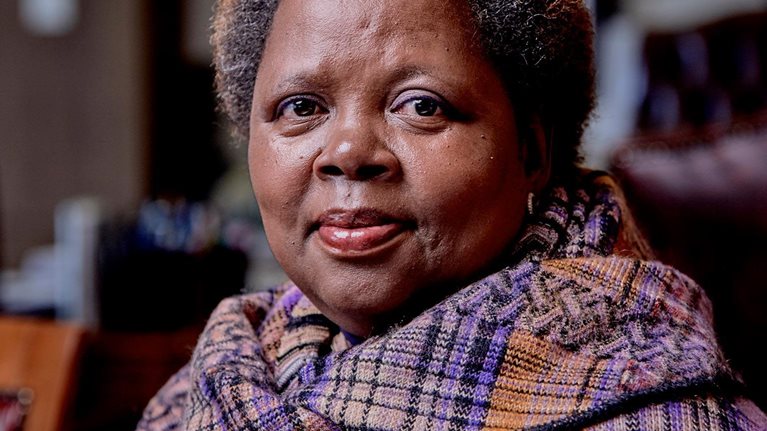When President Nelson Mandela and his new government took office after the historic election of 1994, they faced a prosaic but quite fundamental challenge: South Africa’s public finances were in a mess. The budget deficit stood at around 8 percent, the economy was stagnant, and tax revenues were anemic. There was an urgent imperative to upgrade the basic services—from water to electricity to education—that apartheid had denied so many South Africans. Yet the country didn’t have the money to pay for them.
In this context, one of the first acts of the incoming government was to appoint the South African Tax Commission—which I was privileged to chair—to recommend reforms to the tax system. The commission emphatically concluded that tax policy and tax administration are essentially the same: good tax policies cannot be administered in the absence of an efficient tax bureaucracy. This led the commission to recommend removing the South African Revenue Service (SARS) from the Public Service Commission and instead have it operate independently.
After this restructuring, SARS achieved spectacular success. It broadened the tax base from 1.7 million registered taxpayers in 1994 to 16.8 million in 2014; over the same period, it increased revenue collection eightfold from R114 billion to nearly R900 billion, even as corporate and personal income-tax rates were reduced.1 SARS also achieved a fundamental organizational transformation—in terms of demographics, capabilities, performance culture, and the use of technology. SARS remains an example of excellence, cited across the world—and its consistent high performance has enabled the ramp-up of expenditure on electrification, housing, sanitation, infrastructure, and social services over the past 20 years. The defining characteristic of the transformed SARS is competence.
As South Africa embarks on the next chapter of its democratic journey, I believe we must consider carefully what it will take for other state institutions to achieve levels of competence on a par with that of SARS. This is because, as the experience of many countries shows, there is a powerful correlation between a competent state and good economic and social outcomes.2
In the case of South Africa, the importance of a competent state is all the greater given our historically high levels of poverty and inequality. In 1994, poverty was widespread and the disparities between the wealthy and the poor ranked amongst the greatest in the world. As we wrote in the report of the Tax Commission, “The legacy of poverty and inequality constitutes a moral issue of the gravest dimension. . . . Unless these problems are urgently addressed, the prognosis for South Africa is bleak.”3 Today, despite considerable progress in areas including housing, electrification, and social welfare, high levels of poverty persist. By the most recent measure, one in two South Africans remains below the national poverty line, while the Gini coefficient, which measures inequality, has actually increased—from 0.66 in 1993 to 0.69 in 2013.4
The war against poverty and inequality has to be waged urgently and with great intensity; meaningful redistribution must be undertaken and achieved. During the mid-20th century, conventional wisdom said that redistribution was best achieved by steep progressive taxation. The understanding today is that how taxes are spent is more important than the amount collected. Budgeting for education, healthcare, housing, and other important social needs is to be applauded. However, simply allocating funds for these causes does not necessarily achieve meaningful redistribution. The allocated funds must reach their destined targets. This requires an efficient and competent state.
Good policy, a well-defined vision, and the competent state
It is self-evident that the starting point for a successful state is the enactment of good policies. Good policies alone, however, are not enough to achieve a successful state. In the absence of a competent state, good policies don’t achieve their objectives. A national budget is a blueprint of a government’s priorities in capital allocation—and there is broad agreement that the national budgets in South Africa over the past few years reflect intelligent choices in this regard. Thus education, healthcare, housing, security, and employment have enjoyed special attention. The delivery of the budgeted amounts, however, has been defective, and poor service delivery has been a common complaint. In 2012–13, for example, R256 billion was budgeted for public-sector infrastructure spending, but only R218 billion of this was actually spent. As a percentage of GDP, fixed capital spending by the public sector stands at 7 percent of GDP, significantly lower than the target of 10 percent set out in the National Development Plan (NDP).5
A competent state has a well-defined vision and unity of purpose. Joseph Nye, former dean of the John F. Kennedy School of Government at Harvard University, cites the example of South Korea, where successive governments set a “vision, purpose or narrative” that set out a compelling “theory and story about how to provide for [the country’s] security, welfare, and identity.” Nye argues that the first step in effective governance is “clarity about objectives.” As Oxford University political theorist Stein Ringen has said, “Without vision you can get nothing done . . . you cannot formulate a credible program of government.”
South Africa has done a reasonably good job of providing a common vision of the future through the NDP, which sets out clear objectives for reducing poverty and inequality by 2030 and contains well-conceived policy recommendations to support those goals. However, it also has serious weaknesses. First, it fails to identify goals that can be pursued with vigor in the short term. Second, there has been insufficient communication and education regarding the NDP: the South African public needs to understand its contents and goals, and relate to the plan as a shared and credible mission for the country. Until that happens, gross inequality of both income and wealth will prove to be an obstacle to unity of purpose.
With the success of the 2010 FIFA World Cup, South Africans showed that they are capable of achieving great things. It follows that tackling the problem of inequality and poverty is both a moral and a fundamental policy imperative—and one that is achievable in our lifetimes. But we will defeat poverty and inequality only if we set a parallel objective of enhancing the capacity of the state to implement such policies.
Reforming bureaucracy
In recent decades, many countries have been engaged in significant reforms of their bureaucracies. The aims of these programs have been substantially similar: to refocus government agencies and officials on results and to make them more sensitive to the needs of the citizens they serve, more efficient in carrying out their work, and more innovative and flexible in responding to new circumstances and local conditions.
Many of these reform initiatives include measures designed to improve the performance of the civil service and government agencies. For example, New Zealand replaced department heads with chief executives hired for prescribed terms under carefully drafted performance contracts that reward them for success and remove them if they fail. In the United States the Volcker Commission, appointed by President Bill Clinton, reported on ways to improve the recruitment, training, and deployment of the federal bureaucracy. It urged more rigorous recruiting and better training. It also recommended the ability to fire and reassign poorly performing civil servants.
As South Africa focuses on strengthening the competence of the state to achieve breakthroughs in the war against poverty and inequality, we would do well to consider such reforms. Specific measures could include better selection of prospective civil servants, based essentially on merit; better training for civil servants on the basis of structured programs; better and more structured terms of employment of civil servants, with an emphasis on performance management; and the ability to dismiss nonperforming civil servants. All across the world, the demands on government are greater than ever, as are the challenges. At the same time, satisfaction with the performance of government is decreasing.
If South Africa does not take the necessary action to strengthen its bureaucracy, this dynamic will breed cynicism and instability. As John Micklethwait and Adrian Wooldridge point out in their book The Fourth Revolution: The Global Race to Reinvent the State,6 “Such cynicism might be healthy if people wanted little from the government. But they continue to want a great deal. The result can be a toxic and unstable mixture: dependency on government on the one hand and disdain for government on the other. The dependency forces government to overexpand and overburden itself, while the disdain robs government of its legitimacy and turns every setback into a crisis. Democracy dysfunction goes hand in hand with democratic distemper.”
Collaborative governance and effective institutions
A major challenge in building a competent state is the issue of government overreach: many governments undertake functions that they cannot afford and that could be more effectively undertaken by the private and voluntary sectors. Greater involvement of these sectors could both cut costs and improve delivery of important services. To return to the example of South Korea, welfare services have long been implemented and managed by an alliance of state agencies, businesses, and volunteer organizations.7
As John D. Donahue and Richard J. Zeckhauser point out in their book Collaborative Governance,8 government at every level can engage the private sector and harness its expertise and resources to achieve public goals more effectively. They cite the example of New York’s Central Park, which was designed as an amenity for all citizens but became a symbol of crime, grime, and urban decay in the 1970s. It was resurrected through the Central Park Conservancy, which over the years has mobilized hundreds of millions of dollars in private funding—and many thousands of hours of volunteers’ time—to recreate and maintain the park as a model of public–private partnership. These authors show how governments can carefully and strategically grant discretion to private entities, whether for profit or nonprofit, in ways that simultaneously motivate and empower them to create public value.
While government can build meaningful partnerships with the private sector through collaborative governance, arguably an even more important step is to ensure that the institutions of the state encourage autonomous action by private actors—including investment and entrepreneurial risk taking to start new businesses and develop new technologies. In their landmark work Why Nations Fail, Daron Acemoglu and James A. Robinson stress the importance of inclusive political and economic institutions that protect the rights of all citizens and enable broad-based prosperity, as opposed to “extractive” institutions, which place power in the hands of a few and tend to enrich a small elite. As the authors put it: “Nations fail today because their extractive economic institutions do not create the incentives needed for people to save, invest, and innovate.”9
If South Africa is to win the war against poverty and inequality, we will need to make sure that our progressive, rights-based constitution is matched by political institutions—including the education system and the regulatory framework—that promote broad-based opportunity and prosperity.
In its work in building a competent state, South Africa faces the same issues that governments worldwide are encountering. There are, however, some specific South African issues—particularly our high level of inequality—that present an additional challenge. We must take every possible step to reduce poverty and inequality; this, apart from being a moral imperative, will help to achieve a unity of purpose. In this regard it is crucial that funds allocated in the national budget reach their destined targets through the actions of an efficient and capable civil service.
In addition, we must formulate a compelling vision for South Africa’s future, including the necessary short-term goals. This vision, which should form the basis of state policies, should be communicated to the population through a structured program so that there is a broad understanding of the goals.
Finally, we must recognize that some functions are more efficiently handled through the private sector. With a culture of collaborative governance we can create an enabling environment that will allow the private sector to take on those functions—and to undertake the investment and innovation required for the economy to flourish.
This essay is one of 20 from the book Reimagining South Africa, edited by McKinsey & Company. For more information, visit the McKinsey South Africa website.


